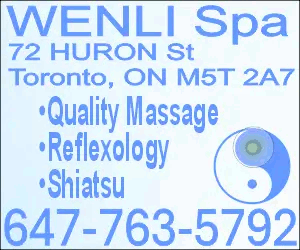
Illustration(Photo: Getty Images/iStockphoto)
Delaware officials want to crack down on massage parlors, some of which they say are havens for prostitution and human trafficking.
With the backing of Attorney General Matt Denn, a bi-partisan group of 16 legislators has proposed a new law that would tighten regulations on massage businesses. The goal is to empower law enforcement to pursue the owners of illegal operations instead of their masseuses, who often are being forced into prostitution.
"These illicit parlors are often located in nondescript suburban settings, nestled right in our communities," said Rep. Bryon Short, D-Highland Woods. "Under our current code, it’s very difficult for law enforcement to go after these establishments directly."
The News Journal contacted five Delaware massage parlors for comment, but owners either declined to comment or did not return calls.

(Photo: Submitted)
Human trafficking is the use of violence, intimidation, financial abuse or fraud to force people into prostitution or labor. It is sometimes referred to as "modern-day slavery."
MORE: Read about the effort to end human trafficking in Delaware
MORE: Prostitution rings busted in Sussex County
Advocates and law enforcement experts say human traffickers frequently use illicit massage parlors as a front to sell their captives for sex. A report by the anti-human trafficking organization Polaris International found that "illicit massage businesses" were the second most common form of sex trafficking, behind so-called "escort services."
"It is not a victimless crime when people are forced into prostitution," Denn said in a statement.
One of Short's co-sponsors on the bill is Rep. Steve Smyk, R-Milford, a former State Police officer. Smyk said the state needs a more effective way to target the operators of massage parlors.
Read the bill here
"When you arrest the person who's engaging in prostitution, you're only getting rid of one woman, not the organization," said Smyk. "To fix the problem, you have to go after the business itself."

(Photo: Rep. Steve Smyk)
Smyk said the parlors get women they use as prostitutes from organized crime groups based out of New York.
If one of the masseuses is convicted, they serve their sentence — a maximum of six months, or one year if the offense happens near a school or place of worship — and return to New York. The crime group then simply replaces them with another trafficked worker, Smyk said.
Currently, individual employees who give massages must be licensed, but there is no requirement that the parlor itself have a license. If passed, the bill would require massage parlors be licensed as and regulated by the Board of Massage and Bodywork, which could inspect the businesses without notice. Those that don't meet sanitary rules and other regulations could be subject to criminal or civil penalties, or shut down.
"By requiring massage establishments to be licensed, we will enable officials to inspect these facilities for safety and sanitation, respond to complaints and close down these parlors," Short said. "Our goal is to make it impossible for these kinds of illicit businesses to operate in Delaware and to protect the real, professional massage establishments in our state who have a role in keeping people healthy."
The new rules would take effect six months after the bill is signed into law, giving owners time to comply.
Over the past few years, several Delaware massage parlors have been busted for prostitution.
In 2014, police arrested Dazhong Wang, who owned several massage parlors in Delaware. Undercover detectives busted employees at his parlors in Middletown and Rehoboth, and the Dover Public Works Department found a sewer pipe at his business in Dover clogged with used condoms.
Wang was convicted of permitting prostitution, and the state sued him for $700,000 for violating racketeering laws. Wang also lost his massage license and was fined $2,000 by the Delaware Board of Massage and Bodywork.
Last June, a criminal complaint was filed against The King and Queen Spa in Newark after numerous complaints from neighbors.
Contact Matthew Albright at [email protected], (302) 324-2428 or on Twitter @TNJ_malbright.
Read or Share this story: http://delonline.us/2m1KTtk
Let's block ads! (Why?)









































































































